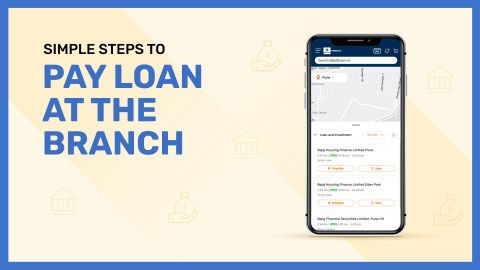What are prepayment charges in a loan against securities?
Prepayment charges in a Loan Against Securities (LAS) refer to the fees that a borrower needs to pay when they choose to repay a part or the entire loan amount before the end of the agreed loan tenure. Since the lender earns interest over the duration of the loan, an early repayment results in a loss of expected interest income. To compensate for this, financial institutions often apply prepayment charges.These charges can vary depending on the lender’s policies, the loan amount, and how early the prepayment is made. Some lenders may allow a certain portion of the loan to be prepaid without any penalties, especially if you have maintained a good repayment history. However, exceeding that limit or foreclosing the loan entirely before a specified period might attract a prepayment fee, usually calculated as a percentage of the outstanding loan amount.
It’s also important to understand that prepayment charges can differ for part prepayment and full prepayment (foreclosure). While part prepayments might have minimal or no charges, full prepayment tends to carry a slightly higher fee. Borrowers should always read the loan agreement carefully to understand these terms in advance.
By knowing the applicable prepayment charges, you can plan your repayment strategy better and save on interest outflows while avoiding unexpected costs. If your goal is to reduce your financial burden early, balance the potential savings on interest against the prepayment fees to make an informed decision. Some lenders offer flexible repayment terms, so it’s worth exploring your options thoroughly before proceeding with a prepayment.
Why do loan against securities have prepayment charges?
Compensate for loss of interest incomeLenders earn income primarily through interest over the loan tenure. When you repay early, they lose expected interest earnings, so prepayment charges help balance this loss.
Protect financial planning of lenders
Banks and financial institutions plan their cash flows based on expected interest inflows. Prepayment disrupts this flow, and charges help mitigate the impact.
Discourage frequent early repayments
Prepayment charges act as a deterrent for borrowers who might otherwise frequently close loans early, creating operational inefficiencies for lenders.
Recover administrative costs
Even if you prepay, lenders still incur administrative expenses related to loan processing and closure, which are covered through prepayment fees.
Ensure commitment to loan tenure
Prepayment penalties encourage borrowers to stick to the agreed repayment schedule, providing lenders with predictable cash flow over time.
Market standard practices
Prepayment charges are common across various types of loans, including LAS, maintaining uniformity in lending practices and borrower expectations.
Compensation for discounted rates
Some lenders offer competitive interest rates assuming a full-term repayment. Early repayment could undermine this assumption, making prepayment charges a balancing factor.
Discourage arbitrage opportunities
Borrowers might take advantage of falling interest rates by prepaying an existing loan and taking a cheaper one. Prepayment charges discourage such behaviour.
Helps maintain portfolio yield
For lenders, the overall return on their loan portfolio is crucial. Prepayment charges help maintain desired profitability levels.
Types of prepayment charges in loan against securities
Full prepayment chargesIf you choose to close your entire loan before the end of the tenure, lenders typically levy full prepayment charges. These charges are usually a fixed percentage of the outstanding principal.
Partial prepayment charges
For making partial payments towards your principal before the scheduled date, lenders may apply partial prepayment fees. These help cover administrative and processing costs.
Fixed fee structure
Some lenders have a fixed fee for any prepayment, regardless of the amount. It could be a flat amount that applies uniformly to all prepayments.
Percentage-based charges
Often, prepayment penalties are calculated as a percentage of the outstanding loan amount. The exact percentage may vary depending on the lender's policies.
Tiered charges based on timing
Charges may reduce over time — for example, higher if prepayment is made early in the tenure, and lower if done closer to the end.
Charges based on loan type and agreement
The prepayment terms often depend on your loan agreement. Loans with promotional rates or special offers may carry higher prepayment fees.
Minimum amount-based charges
Some lenders require that prepayments exceed a minimum threshold, failing which additional charges could apply.
Foreclosure charges
If you opt for complete foreclosure of your loan against securities, lenders may levy a specific foreclosure charge distinct from regular prepayment penalties.
No prepayment charges in some cases
Select lenders may offer zero prepayment penalties after a certain period, promoting flexibility for long-term customers.
How prepayment charges affect your loan against securities repayment?
Prepayment charges can have a noticeable impact on the overall repayment of your loan against securities. When you choose to repay your loan earlier than the agreed tenure, lenders often levy these charges to compensate for the interest income they forgo. Essentially, while prepayment allows you to reduce your outstanding liability and save on future interest, the associated charges may slightly offset these benefits.If you plan to make a partial prepayment, you reduce the principal amount, which, in turn, lowers the interest component of future EMIs. However, lenders may impose a fee on partial prepayments, typically calculated as a percentage of the prepaid amount. Over time, this still helps you save, but it’s essential to compare the potential interest savings against the prepayment penalty.
For full prepayment or foreclosure, while you clear your debt and eliminate future interest payments, you must account for foreclosure charges. These charges can vary from lender to lender and may impact the total cost-benefit equation of closing the loan early.
Furthermore, if you intend to repay within the initial months of availing the loan, you might face higher prepayment penalties. Some lenders reduce or waive these charges after a certain period, encouraging borrowers to wait before repaying early.
Understanding these charges helps you plan your repayment strategy more efficiently. Always check your loan agreement or speak to your lender before making any prepayments to ensure that the penalties do not outweigh the interest benefits.
By being informed, you can strike the right balance between reducing your debt burden and managing associated costs smartly.
Tips to avoid or minimise prepayment charges on your loan against securities
Understand your loan agreement thoroughlyBefore prepaying, go through the loan terms and conditions carefully. Some lenders offer zero prepayment charges after a certain lock-in period.
Time your prepayment strategically
Plan your prepayment after the lock-in period to reduce or avoid penalties. Charges are often higher if you prepay early in the loan tenure.
Opt for partial prepayment instead of full foreclosure Consider making smaller, gradual prepayments. Check the Bajaj Part Prepayment option for flexibility and potentially lower charges.
Negotiate with your lender
Talk to your lender about waiving or reducing the prepayment penalty, especially if you have a good repayment record.
Maintain a good credit history
A strong credit score can give you leverage to negotiate lower or zero prepayment charges with your lender.
Keep track of EMI status regularly Stay updated on your repayment schedule and plan prepayments accordingly. Use my EMI status to monitor your payments.
Look for special offers or schemes
Some lenders periodically offer limited-time waivers on prepayment charges. Keep an eye out for such opportunities.
Avoid prepaying during promotional interest rates
If you’re under a promotional lower interest rate period, prepayment charges might be higher. Wait until normal rates apply.
Consult a financial advisor
A financial expert can guide you on the best prepayment strategy to minimise penalties while maximising savings.
Use bonus income wisely
Allocate bonus income or unexpected cash flows for partial prepayments, keeping charge implications in mind.
By following these smart tips, you can reduce the impact of prepayment charges and manage your loan against securities repayment efficiently.




